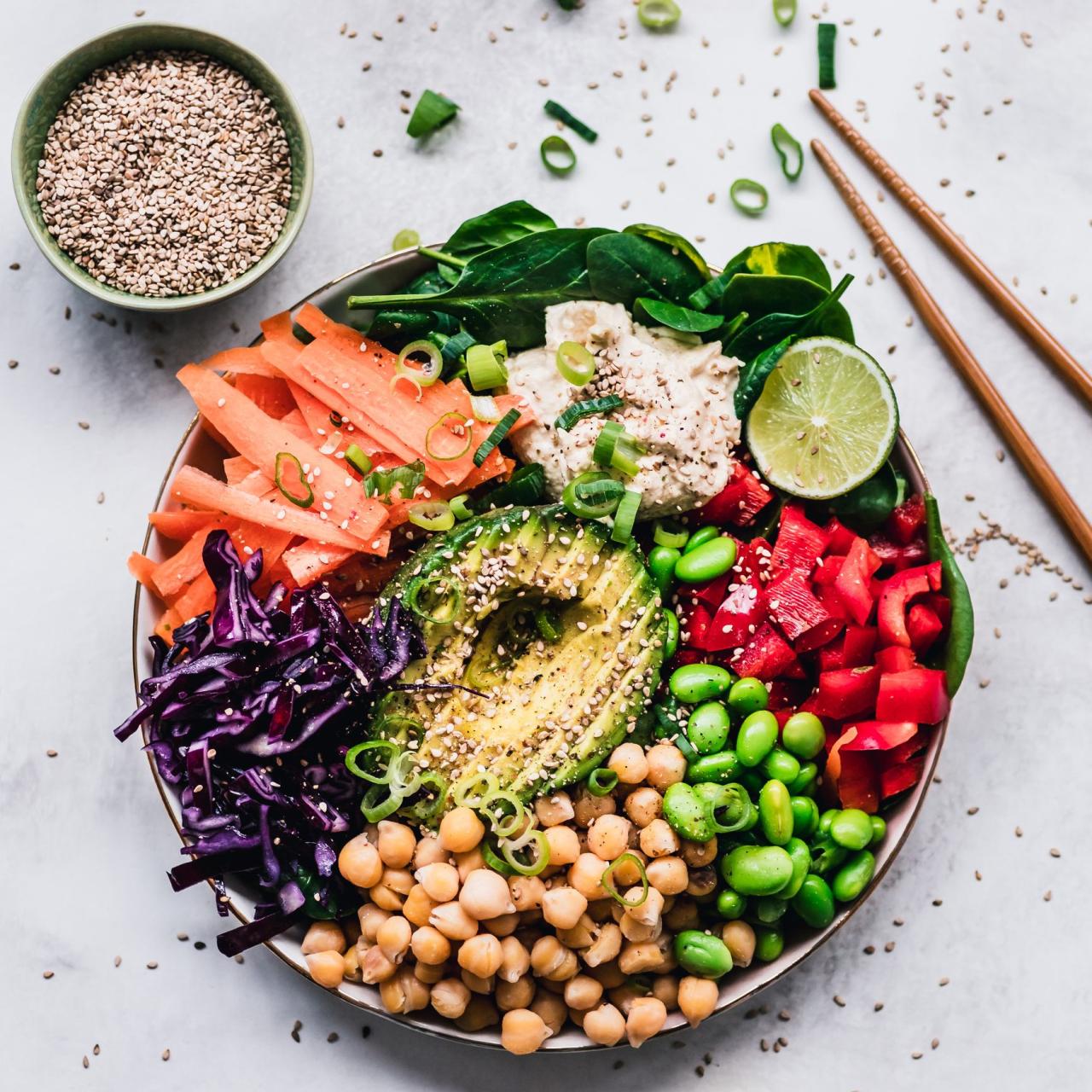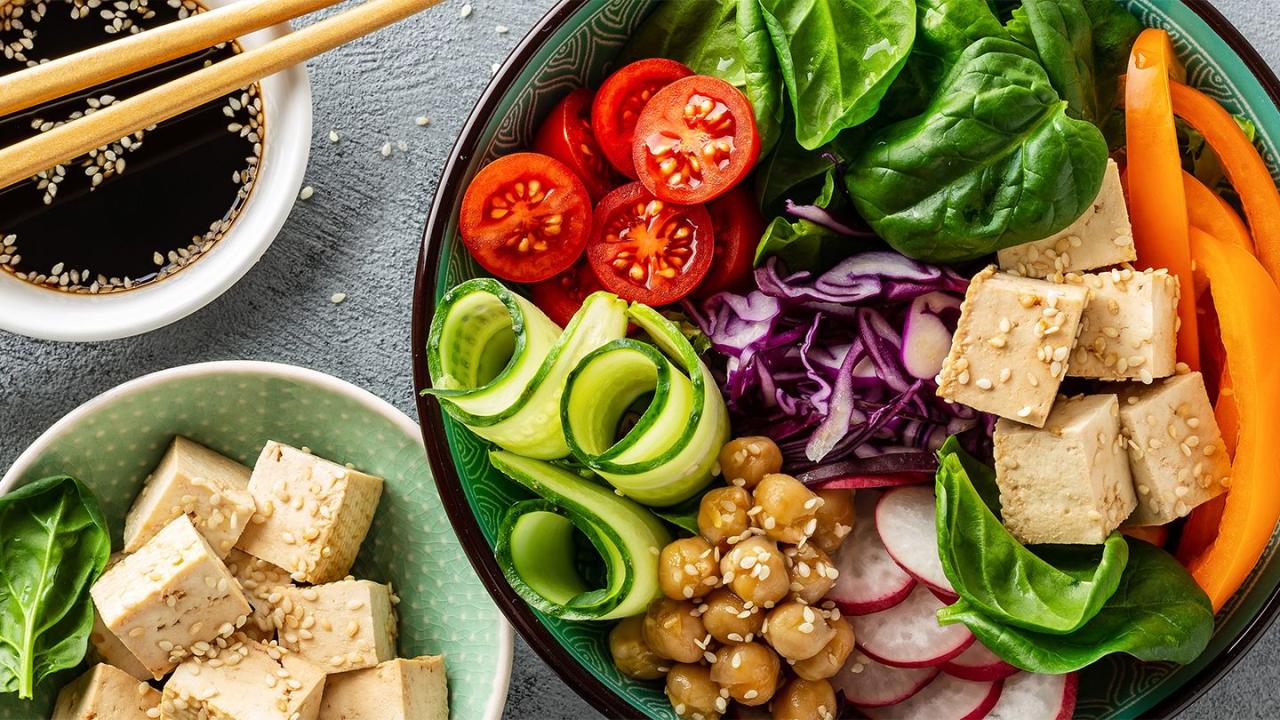Vegetarian diet definition sets the stage for a lifestyle that embraces a plant-based approach, encompassing various forms such as lacto-vegetarian, ovo-vegetarian, and vegan. Join us on a journey to unravel the core concept, health benefits, challenges, environmental impact, cultural significance, and a step-by-step guide to transitioning into a vegetarian lifestyle.
Vegetarianism goes beyond dietary choices; it’s a philosophy that intertwines health, ethics, and sustainability. Whether driven by compassion for animals, environmental concerns, or personal well-being, vegetarianism offers a transformative path towards a healthier and more conscious way of living.
Transitioning to a Vegetarian Diet

Adopting a vegetarian lifestyle can be a transformative journey, offering numerous health and ethical benefits. To make this transition as smooth and enjoyable as possible, here’s a step-by-step guide with tips and meal ideas for beginners.
Embarking on a vegetarian diet requires gradual changes, seeking support, and navigating social situations with ease. Let’s explore each aspect to ensure a successful transition.
Embracing a pescetarian lifestyle offers a plethora of health benefits. From reducing the risk of chronic diseases like heart disease and stroke to improving brain function and boosting mood, the benefits of being a pescetarian are undeniable. Moreover, it’s an environmentally conscious choice, as it helps protect marine ecosystems by reducing the demand for seafood.
Gradual Changes
Avoid drastic dietary shifts; instead, start by reducing meat consumption. Begin with one meatless day per week, gradually increasing the frequency as you become more comfortable. Experiment with vegetarian dishes, such as veggie burgers, tofu scrambles, and lentil soups, to find alternatives you enjoy.
Finding Support
Connect with friends, family, or support groups who share your vegetarian values. Seek advice from a registered dietitian to ensure you’re meeting your nutritional needs. Online forums and social media platforms also provide valuable support and resources.
Navigating Social Situations, Vegetarian diet definition
Inform friends and family about your dietary choices and politely decline meat-based dishes at social gatherings. Offer to bring your own vegetarian dishes to share and educate others about the benefits of a plant-based diet.
Embracing a pescetarian lifestyle offers a myriad of health benefits. Studies have shown that individuals who follow this diet have a lower risk of chronic diseases such as heart disease and stroke. Pescetarians consume fish and other seafood, which are rich in omega-3 fatty acids, known for their anti-inflammatory properties and potential to improve brain function.
Additionally, being a pescetarian can aid in weight management as seafood is generally low in calories and fat.
Sample Meal Plan
To kickstart your vegetarian journey, consider the following meal plan:
- Breakfast:Oatmeal with berries and nuts
- Lunch:Lentil soup with a side salad
- Dinner:Vegetarian chili with brown rice
- Snacks:Fruits, vegetables, nuts, and seeds
Final Review

In the realm of vegetarianism, the choice to embrace a plant-based diet is not merely a culinary shift but a profound transformation. It’s a testament to our interconnectedness with the environment, our compassion for all living beings, and our pursuit of optimal health.
As we delve deeper into the vegetarian diet definition, we uncover a world of possibilities, challenges, and rewards that await those who dare to tread this path.
FAQ Summary: Vegetarian Diet Definition
What are the main types of vegetarian diets?
Vegetarian diets can be categorized into lacto-vegetarian (includes dairy), ovo-vegetarian (includes eggs), and vegan (excludes all animal products).
What are the potential health benefits of a vegetarian diet?
Vegetarian diets have been associated with reduced risk of heart disease, certain types of cancer, and improved weight management.
What are some challenges vegetarians may face?
Vegetarians may need to pay attention to ensuring adequate intake of certain nutrients, such as iron, vitamin B12, and calcium.
How can I transition to a vegetarian diet?
Start by gradually reducing meat consumption and incorporating more plant-based foods into your meals.